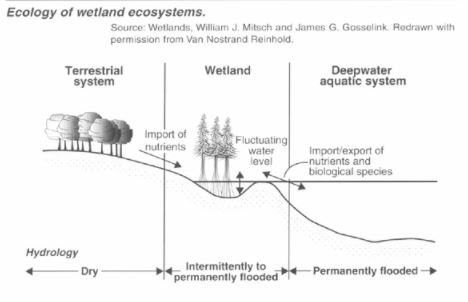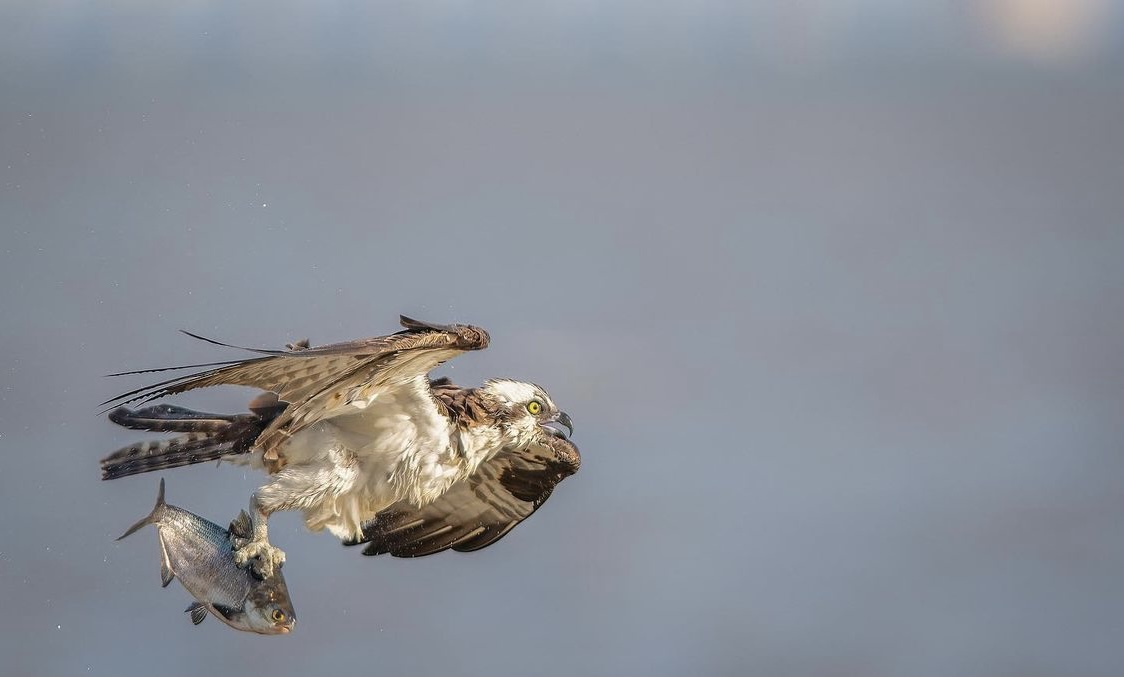Have you ever taken a visit to Lions Bridge and wondered why there are “No Trespassing” signs stopping you from sun-bathing on that oh-so-tempting perfect little river beach? The short answer is to prevent shoreline erosion and protect wildlife. The long answer is below…
What is a wetland?
The Shoreline Area at Lions Bridge is a wetland, my favorite type of ecosystem. Wetlands are transitional ecosystems between aquatic and terrestrial ecosystems that flourish with life. Simply, a wetland is a habitat between a body of water and a piece of dry land. Each type of aquatic system correlates with a wetland system. For example, an estuarine wetland would be the transition between an estuary and land, while a riverine wetland corresponds to a wetland near a river. To qualify as a wetland, an area must meet certain criteria: presence of water at or near the surface, hydric soils, and vegetation adapted to wet conditions.
Why are wetlands important?
Wetlands have a wide variety of benefits, including but not limited to: shoreline stabilization, breeding ground and nursery for animals, water quality improvement, floodwater storage, habitat for threatened and endangered species, decomposition, carbon storage, etc. These ecosystems provide critical habitats for birds, amphibians, reptiles, fishes, mammals, microbes, macro-invertebrates, and plants. Wetlands have even been used for secondary wastewater treatment, as a natural means to clean water. Mangrove swamps, a type of wetland widely found in Asia, reduce damage done by tsunamis by lowering the surge power of the wave, thus saving human lives, and structures. The functions of wetlands are endless and vary depending on the geographic location!
The shoreline down at Lions Bridge embodies all of these ecosystem services crucial to our Earth. Our shoreline is home to a variety of animal species, including birds, fish, duck, and turtle species. For example, ospreys nest in trees by the shoreline. If you are lucky (and patient) you might see them dive and catch a fish for dinner! The grasses and other vegetation slow down the wave energy from eroding sediment, and it is a beautiful area to appreciate, but from a distance. Take a look at these aerial photos of Lions Bridge over the last 100 years. The shoreline area is getting smaller and smaller, and by walking through the marsh grasses and all over the sand, you might loosen the sediment and contribute to the erosion of the shoreline. Not to mention, disturb the wildlife in their home!
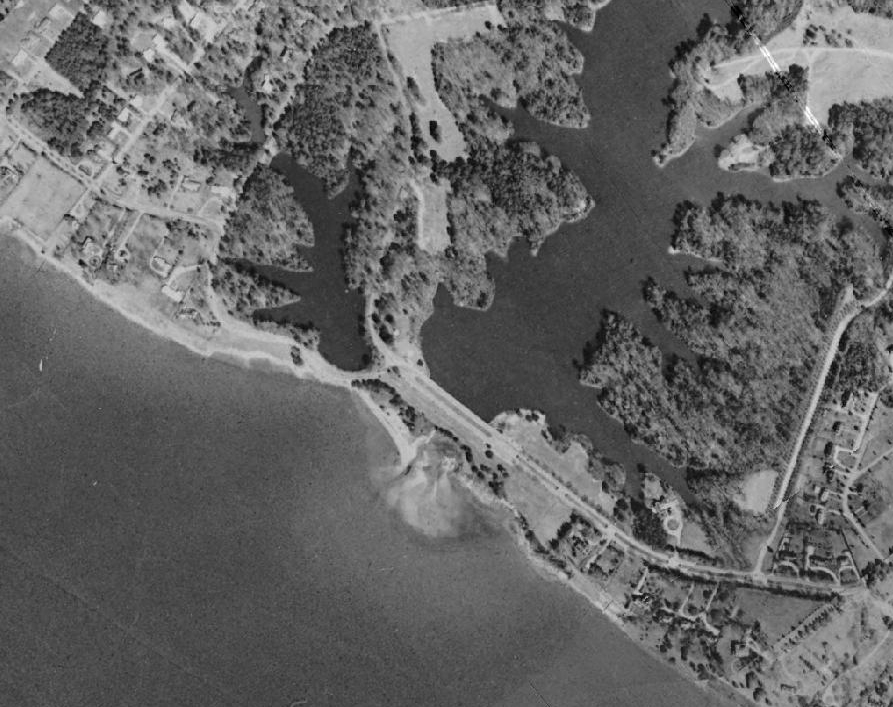
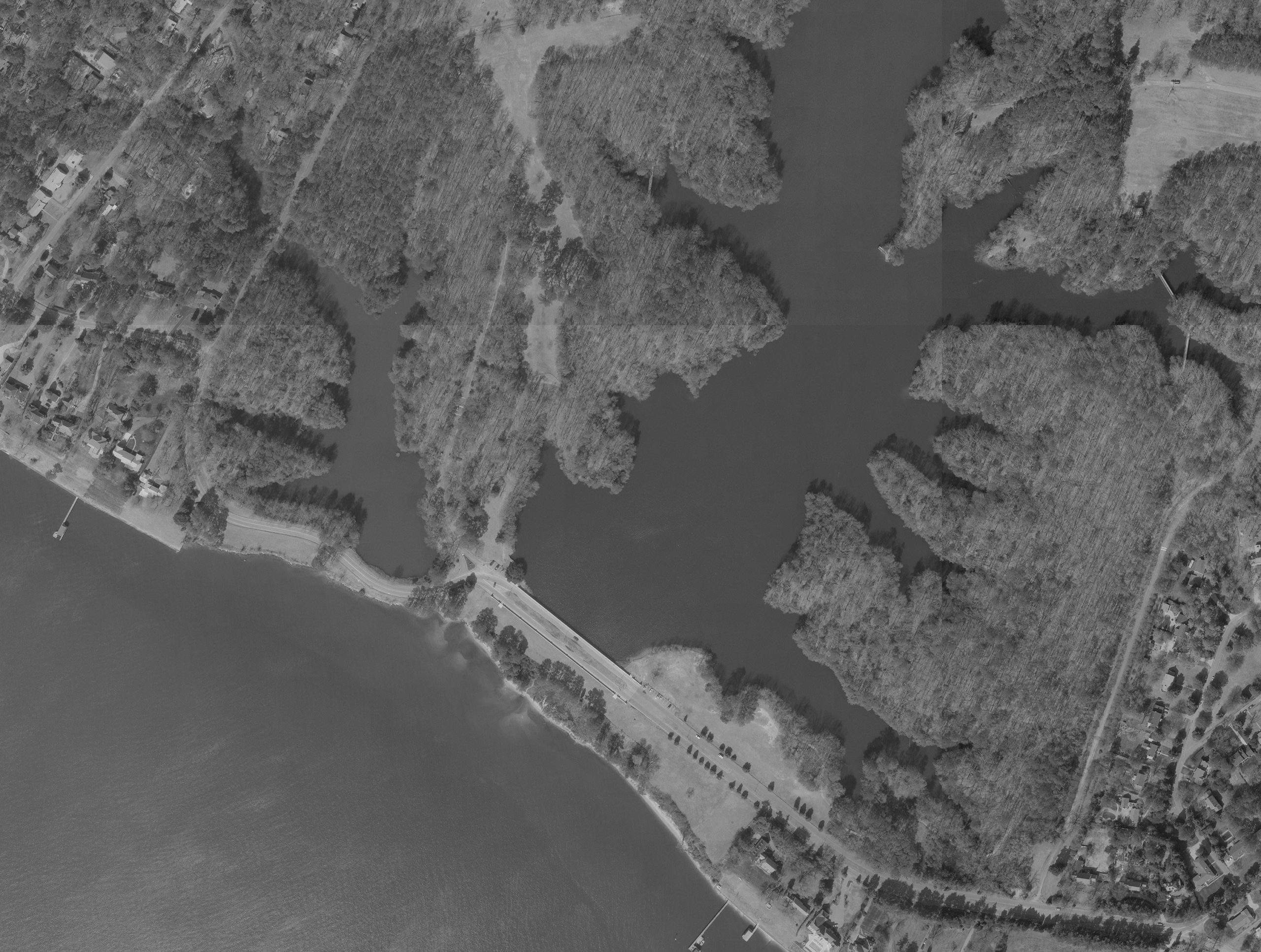
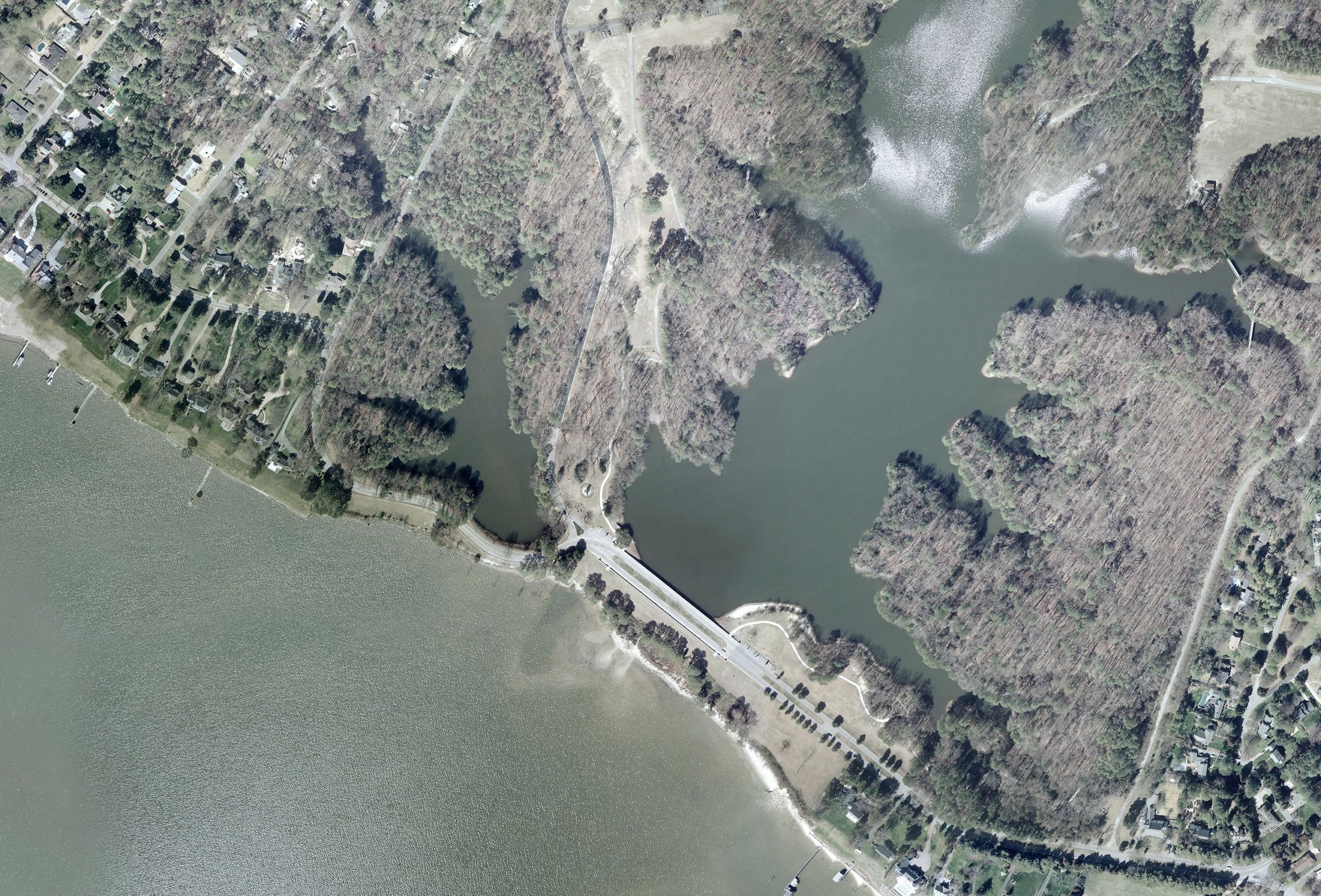
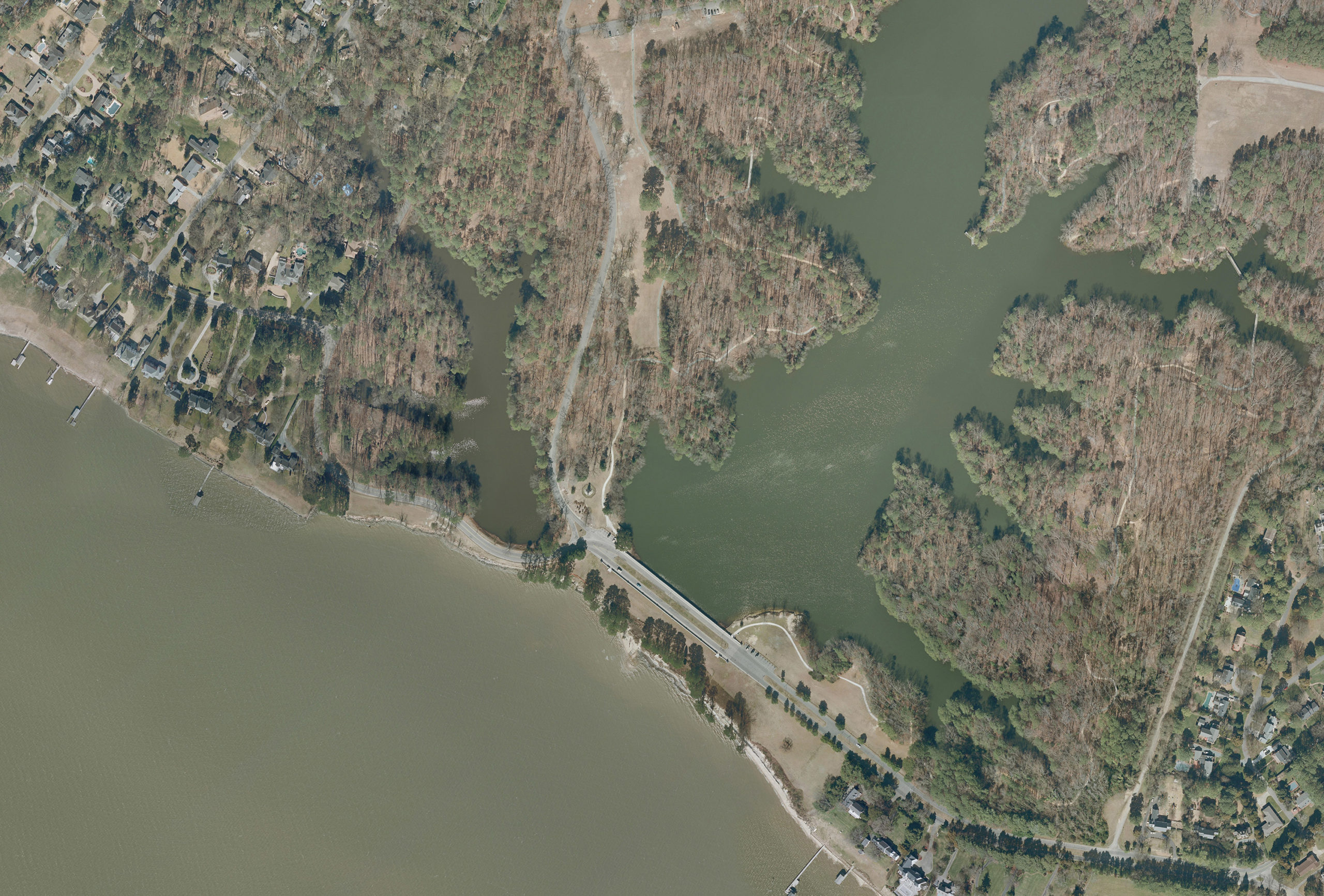
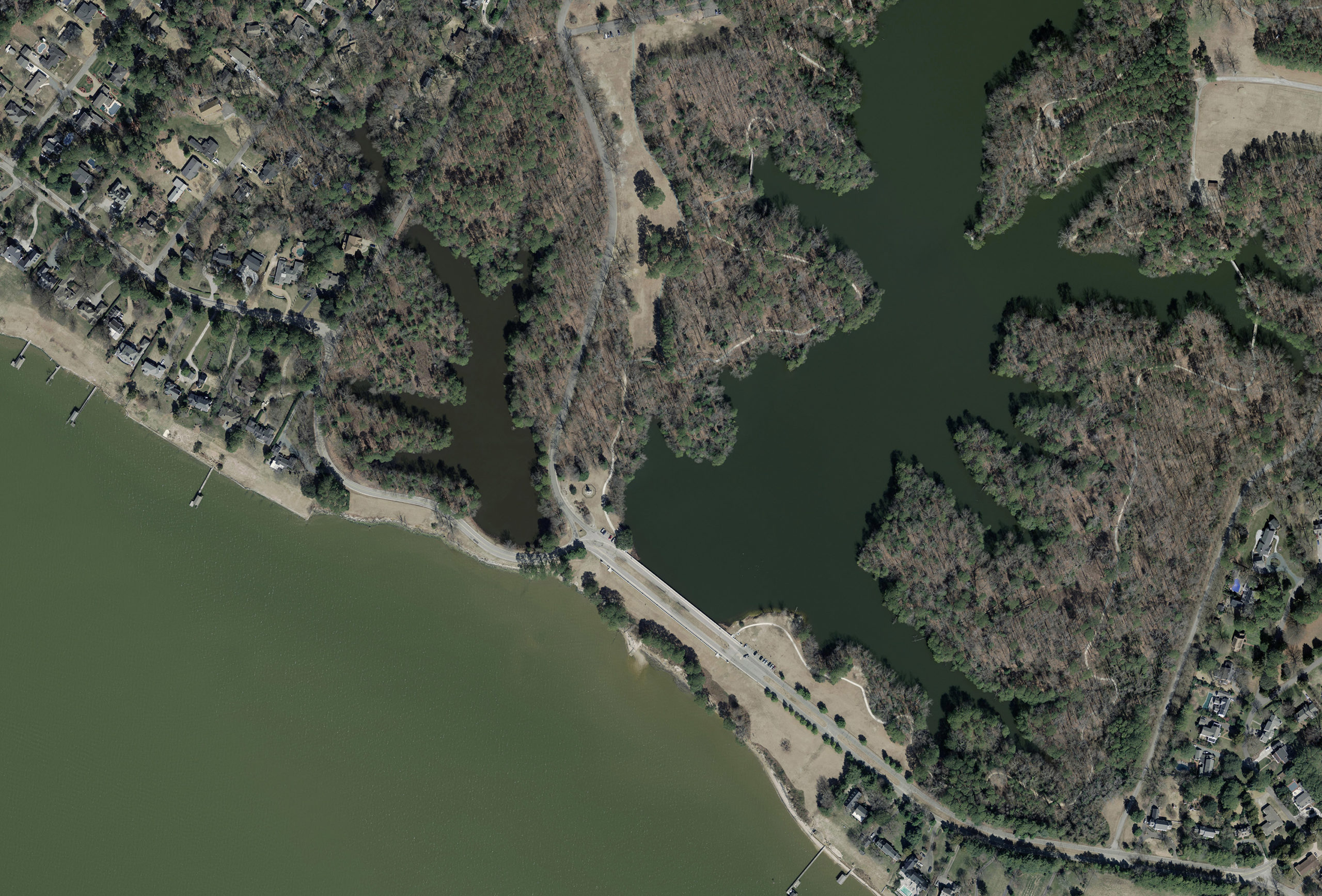
What happens without wetlands?
According to the U.S. Fish and Wildlife Service, the United States originally contained almost 392 million acres of wetlands. Between the 1780’s to 1980’s ten states have lost 70% or more of their original wetland acreage, and 22 states have lost 50% or more of their original wetland acreage. Wetland loss is still occurring worldwide today.
Increase in flood damages, drought damages, and the declining bird populations are, in part, the result of wetlands degradation and destruction.
How can you make a difference?
Here at The Mariners’ Museum and Park we are working on ways to prevent shoreline erosion. You can do your part by staying off the shoreline and not exploring further than the restoration signs. Appreciate nature from a distance, rather than disturb the wildlife. Thank you for keeping our Park wild!
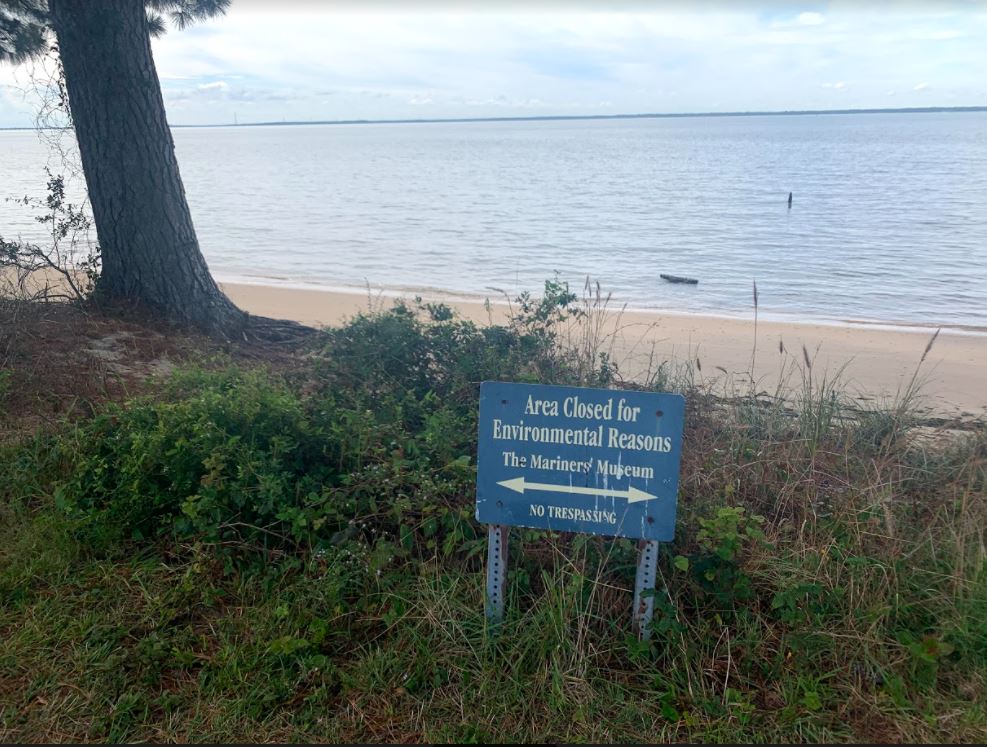
Sources:
Dahl, Thomas. 1990. “Wetlands Loss Since the Revolution.” National Wetlands Inventory, U.S. Fish and Wildlife Service. R.f. https://www.fws.gov/wetlands/Documents%5CWetlands-Loss-Since-the-Revolution.pdf
United States Department of Agriculture. 1995. “Wetlands Values and Trends.” R.f. https://www.nrcs.usda.gov/wps/portal/nrcs/detail/national/technical/nra/rca/?cid=stelprdb1042133
